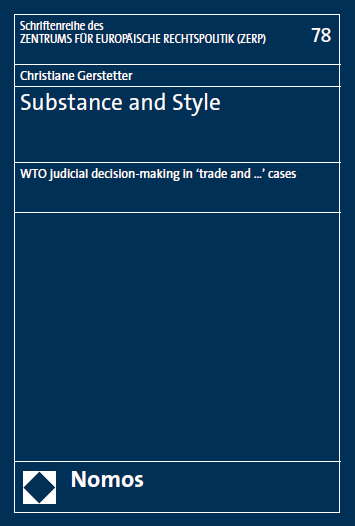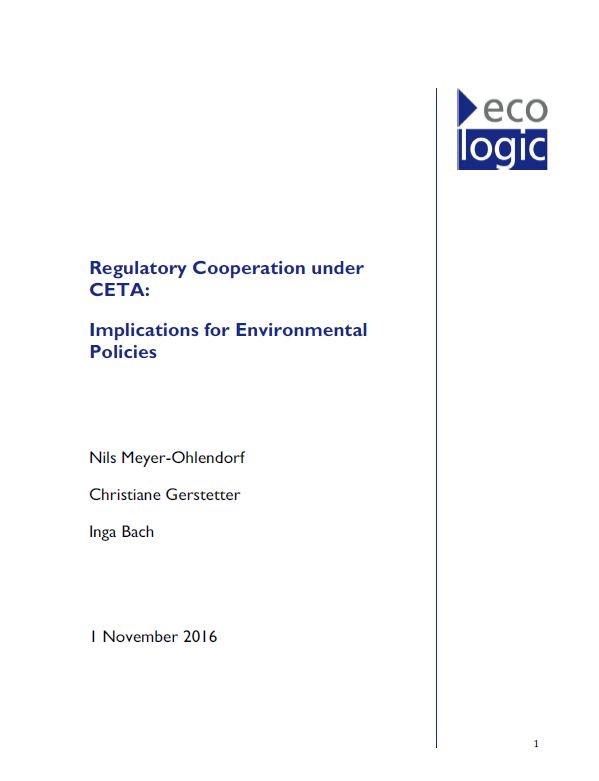Recent years have seen the conclusion of many bilateral and plurilateral Free Trade Agreements (FTAs). The proliferation of FTAs has been accompanied by a debate about "greening" FTAs and incorporating environmental provisions. At first sight, this seems to mirror the long-standing debate in the WTO about to what extent its rules allow for domestic environmental measures that affect trade.
However, environmental provisions in FTAs raise different issues because they frequently consist of labour and environmental obligations, standards and political commitments in their own right. Reasons for including them in FTAs may include e.g. benefitting from the FTA's political and legal strength, or increasing the FTA's political legitimacy and acceptance by environmental stakeholders and the public. The research project was compiled on behalf of the German Environment Agency (UBA).
The aim of the project is to discuss the current state of knowledge and future role of environmental provisions in free trade agreements. The focus is particularly on a literature review of the last ten years, as well as the (legal) analysis of a global selection of free trade agreements.
Main points of the report
- The first part gives an overview of the literature on free trade agreements and sustainability provisions over the past ten years. The focus is to highlight key developments and possible research gaps in literature.
- Second, the Commission published a new approach to strengthen the implementation and enforcement of Trade and Sustainable Development (TSD) chapters in June 2022. The TSD Communication identifies six policy priorities, for which a brief legal analysis is provided.
- An expert workshop with participants from academia, relevant international organizations, policy advisors, and civil servants was also part of the project. During the workshop, we presented preliminary results of the project and experts were given the opportunity to contribute their views and thus enrich the discussion.
- In the fourth part, relevant studies on the role and impact of environmental provisions in FTAs are analyzed and commented, including the study Velut et al (2022) or Morin and Rochette (2017).
- The last part emphasizes the legal analysis of the design of environmental provisions in a globally representative selection of FTAs, combining data from the "TRade and ENvironment Database" (TREND)1 with a qualitative analysis of their actual legal content.
1 Morin, J.-F. et al. (2018). Mapping the trade and environment nexus: Insights from a new dataset. Global Environmental Politics, 18(1). For the database see http://trend.ulaval.ca/ and https://klimalog.idosresearch.de/trend/about-trend.html.






